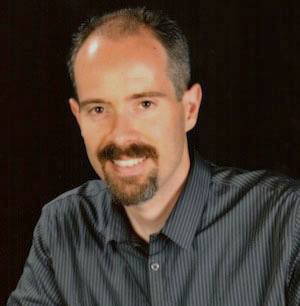Former Sobrato High School teacher Gary Harmon, who is accused of bilking investors to the tune of half a million dollars, was ordered by a judge in civil court last month to pay one of his alleged victims $248,000—even though Harmon was the one demanding damages for defamation and other offenses.
The alleged victim, Morgan Hill resident Mike DiRubio, who previously reported Harmon to police for embezzling money from him, said he feels vindicated by the civil judgment.
The civil lawsuit is separate from and has no bearing on the criminal complaint charging Harmon with five felonies in relation to the alleged theft of about $500,000 from four victims in Morgan Hill. Harmon, 42, will next appear in court on those charges 1:30pm Aug. 30 at South County Courthouse.
But Harmon also faces monetary damages in the civil defamation lawsuit that he and business partner Mark Masoni filed against DiRubio. The $248,000 judgment applies to both Harmon and Masoni.
Harmon and Masoni, both former teachers at Sobrato, filed the lawsuit in July 2015. The complaint claims that DiRubio defamed their character by posting social media comments and sending emails to third parties stating that Harmon and Masoni stole hundreds of thousands of dollars from him after they convinced DiRubio to invest in their production company, ISE Entertainment. DiRubio has maintained that after investing about $250,000 for ownership shares of ISE Entertainment in 2013, Harmon simply kept the money; and both Harmon and Masoni reneged on their promise to repay him with recurring income.
Harmon and Masoni’s lawsuit also claims DiRubio damaged their reputation and revenue opportunities by telling ISE’s vendors and potential investors to avoid doing business with Harmon and Masoni because the company is being run by “thieves,” reads Superior Court Judge Carrie Zepeda’s summary contained in her July 27 judgment.
The judge ruled that “the gist” of DiRubio’s unflattering comments about Harmon and Masoni were true, and thus not defamatory. The written ruling notes that, based on testimony and evidence presented at a bench trial in November 2017, the Morgan Hill Police investigation and district attorney’s charges against Harmon show that DiRubio had a strong case for his accusations of theft.
Zepeda’s ruling also includes a list of unsavory or careless actions on the part of ISE Entertainment, Harmon and Masoni that cripple the plaintiffs’ credibility, including the fact that both testified that nobody had been tasked with keeping financial records of the company’s transactions.
“(The) facts show Mr. Harmon and Mr. Masoni to be less than credible and that they have a history of fabricating evidence in and outside of court proceedings in an attempt to gain an advantage,” reads part of Zepeda’s ruling. “In addition, it is highly unusual and suspicious that a business keeps no financial records of its transactions and losses. To add to the cloud of suspicion, ISE Entertainment was not registered with the Secretary of State to conduct business in California, despite producing several concerts in the state. Furthermore, it appears that ISE did not complete tax returns for the business it conducted in the state.”
Zepeda also ruled that Harmon and Masoni have no cause to claim DiRubio breached his fiduciary duty to ISE Entertainment because there was no record that he had such a duty, and DiRubio was “duped into believing” he had a stake in the company.
Harmon and Masoni sought $2.5 million in damages from DiRubio. Instead, the judge ruled that the plaintiffs will “take nothing by way of their complaint” and they owe DiRubio $248,000. DiRubio must return his shared in ISE Entertainment to the company—shares that DiRubio said “are not worth the paper they’re printed on.”
Harmon and Masoni filed objections to the judge’s tentative ruling in June. However, those were rejected by Zepeda, who issued the final ruling in late July.
DiRubio’s attorney, Carlos Martinez, said he was pleased that “justice prevailed” in the civil case, but now he faces the difficult task of collecting $248,000 from Harmon and Masoni.
“I’m happy Mike prevailed—he said what he said (about Harmon and Masoni), but he was justified in saying it,” Martinez said.
Harmon and Masoni plan to appeal Zepeda’s ruling, according to their attorney.
“Mr. Harmon and the other plaintiffs respectfully disagree with the trial court’s statement of decision and judgment,” said attorney Dhaivat H. Shah. “Plaintiffs were the victims of acts of defamation for which they have not yet been provided a remedy. Plaintiffs intend to address their concerns with the California Court of Appeal.”
Harmon, DiRubio and Masoni also worked together for the production company ARTTEC, which was highly active in 2013 and 2014 producing concerts and bringing celebrities to Morgan Hill. The company—which had a stated goal of helping young people get started on careers in entertainment production—brought such acts as Kiefer Sutherland, Queensryche, Survivor, Greg Kihn and Bret Michaels to local venues.
In recent years, Harmon has filed a number of civil lawsuits against others who have accused him of fraud.
In the criminal case, Harmon is charged with two counts of grand theft and three counts of communications containing untrue statements and omissions of fact, in relation to the embezzlement of more than $500,000 from four local victims. If convicted, he faces up to 16 years in prison.
He was arrested March 23, 2017 in Las Vegas on a warrant from Morgan Hill Police. Harmon allegedly convinced his victims to invest in his production companies or projects, with promises of repayment that never materialized. Police reports claim Harmon exaggerated or fabricated relationships with beloved celebrities—including country music legend Willie Nelson, Apple co-founder Steve Wozniak and former Motley Crue frontman Vince Neil—to fraudulently sell hundreds of thousands of dollars worth of investments to the marks, according to police.
DiRubio is named as one of the victims in the criminal case. He has said Harmon not only stole his money—he also robbed his daughter of her college fund.








